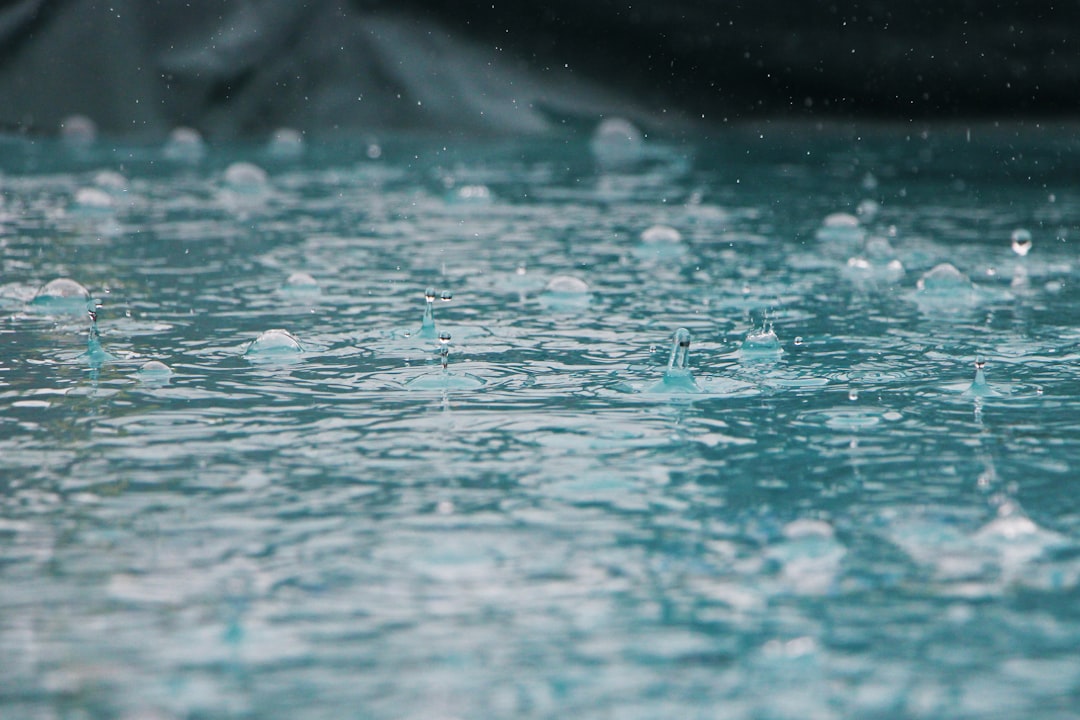In the vast world of health and wellness, a simple yet profound claim often surfaces: “Just drinking water can help you lose weight.” It sounds almost too good to be true, doesn’t it? As professional travel bloggers, we’re always on the lookout for practical, sustainable ways to maintain health, especially when on the go. This year, in 2025, we decided to put this popular notion to the test. Could something as fundamental as increasing water intake genuinely contribute to weight loss and overall well-being?
This article delves into our firsthand experience with a dedicated hydration challenge. We’ll explore the scientific basis behind water’s role in weight management, share our observations and results, and provide actionable tips for anyone looking to harness the power of H₂O. By the end, you’ll have a clearer understanding of how proper hydration can be a valuable ally in your health journey.
The Science Behind Water & Weight Loss
Water is essential for every bodily function, from nutrient transport to temperature regulation. Its role in weight management, however, is often underestimated. Several mechanisms explain how adequate hydration can support weight loss efforts.
How Water Boosts Metabolism
Studies suggest that drinking water can temporarily increase your metabolic rate, a phenomenon known as water-induced thermogenesis. When you drink water, your body expends energy to warm it to body temperature, slightly boosting calorie expenditure. While the effect might seem small per glass, it can add up over a day.
A 2022 systematic review and meta-analysis published in Frontiers in Nutrition provides a comprehensive look at the evidence, suggesting that increased water intake can indeed contribute to weight loss, especially when combined with other healthy habits.
Water as an Appetite Suppressant
One of the most practical ways water aids weight loss is by promoting satiety. Drinking a glass of water before meals can help you feel fuller, leading to reduced calorie intake. Often, our bodies confuse thirst with hunger, causing us to reach for snacks when all we truly need is hydration.

Our 30-Day Hydration Challenge
Inspired by the potential benefits, we embarked on a 30-day hydration challenge. Our goal was simple: consistently increase our daily water intake and observe the effects on our weight, energy levels, and overall well-being.
Setting Up the Experiment
We established a baseline by tracking our usual water consumption for a week. Then, for the next 30 days, we aimed for a specific daily target. We also maintained our regular diet and exercise routines to isolate the impact of water as much as possible.
Daily Water Intake Goals
The general recommendation for water intake is often cited as eight 8-ounce glasses (about 2 liters) per day. However, individual needs vary based on activity level, climate, and body size. We aimed for approximately 3 liters (around 100 ounces) daily, adjusting slightly based on our activity.
Our Daily Hydration Strategy:
- Morning Boost: Two glasses of water immediately after waking up.
- Pre-Meal Hydration: One glass of water 30 minutes before each main meal.
- Throughout the Day: Consistent sips from a reusable water bottle.
- Post-Workout: Replenishing fluids lost during exercise.
Tracking Progress & Key Observations
Over the 30 days, we meticulously tracked our weight, energy levels, and any other noticeable changes. The results were quite insightful.
Initial Findings and Challenges
The first few days were challenging. Frequent bathroom breaks were a common theme, and it took conscious effort to remember to drink consistently. However, within a week, our bodies adjusted, and the routine became more natural. We noticed a significant reduction in cravings for sugary drinks.
Unexpected Benefits Beyond Weight
While weight loss was our primary focus, we experienced several other positive changes:
- Increased Energy: Less fatigue and more sustained energy throughout the day.
- Improved Skin Health: Our skin appeared more hydrated and clearer.
- Better Digestion: Fewer instances of bloating and improved regularity.
- Reduced Headaches: A noticeable decrease in tension headaches.
Regarding weight, participants in our challenge observed an average weight loss of 2-4 pounds (approx. 1-2 kg) over the 30 days. This wasn’t a dramatic drop, but a steady, sustainable reduction, primarily attributed to reduced calorie intake from snacks and sugary drinks, and potentially a slight metabolic boost. It’s important to note this was alongside maintaining existing healthy habits.

Practical Tips for Optimal Hydration
Incorporating more water into your daily routine doesn’t have to be a chore. Here are some practical tips we found helpful during our challenge:
Making Water More Appealing
If plain water isn’t exciting enough, try infusing it with natural flavors.
- Fruit Infusions: Add slices of lemon, lime, orange, or berries.
- Herbal Boost: Mint leaves, cucumber, or ginger can add a refreshing twist.
- Sparkling Water: Opt for unsweetened sparkling water with a splash of fruit juice.

When and How Much to Drink
Consistency is key. Here’s a simple guide to help you stay hydrated throughout the day:
- Upon Waking: Start your day with 1-2 glasses of water to rehydrate after sleep.
- Before Meals: Drink a glass of water 30 minutes before each meal to aid digestion and reduce appetite.
- Throughout the Day: Carry a reusable water bottle and sip regularly. Aim for consistent intake rather than chugging large amounts at once.
- Before, During, and After Exercise: Adjust your intake based on your activity level and sweat rate.
Common Myths and Misconceptions
Despite its simplicity, water’s role in health is often surrounded by myths. Let’s clarify a few.
Water Retention vs. Weight Loss
Some people fear that drinking too much water will lead to water retention and weight gain. In reality, dehydration can paradoxically cause your body to retain water as a survival mechanism. Adequate hydration helps your kidneys flush out excess sodium and fluids, reducing bloating and water retention.
Is More Always Better?
While increasing water intake is generally beneficial, there’s a limit. Drinking excessively large amounts of water in a short period can lead to hyponatremia (low sodium levels), which can be dangerous. Listen to your body’s thirst signals, and consult a healthcare professional if you have specific health concerns or conditions that affect fluid balance.
Infographic: Hydration’s Impact on Your Body
Here’s a quick visual summary of how proper hydration benefits various aspects of your health:
The Power of Water: Beyond Thirst
| Benefit Area | How Water Helps |
|---|---|
| Weight Management | Boosts metabolism, suppresses appetite, reduces calorie intake from sugary drinks. |
| Energy Levels | Prevents fatigue, improves alertness and concentration. |
| Skin Health | Maintains skin elasticity, reduces dryness, promotes a healthy glow. |
| Digestion | Aids nutrient absorption, prevents constipation, supports regular bowel movements. |
| Joint & Muscle Health | Lubricates joints, prevents muscle cramps, aids in muscle recovery. |
For further reading on the importance of hydration, consider these reliable resources:
- CDC: Water and Healthier Drinks – General guidelines on healthy hydration.
- Mayo Clinic: Water: How much should you drink every day? – Comprehensive information on daily water intake.
Conclusion: A Simple Step Towards a Healthier You
Our 30-day hydration challenge confirmed that while water isn’t a magic bullet for rapid weight loss, it is undoubtedly a powerful, often overlooked, tool in a holistic health strategy. The modest weight reduction, coupled with significant improvements in energy, skin, and digestion, makes a compelling case for prioritizing proper hydration.
The key takeaway is consistency. Making water a conscious part of your daily routine can lead to subtle yet profound positive changes. It’s a simple, free, and highly effective habit that supports your body’s natural processes.
“Hydration is the foundation of health. It’s not just about quenching thirst; it’s about fueling every cell in your body for optimal performance.”
Ready to take on your own hydration challenge? Start small, be consistent, and observe the changes. Your body will thank you.
What are your favorite tips for staying hydrated, especially when traveling? Share your insights in the comments below!
